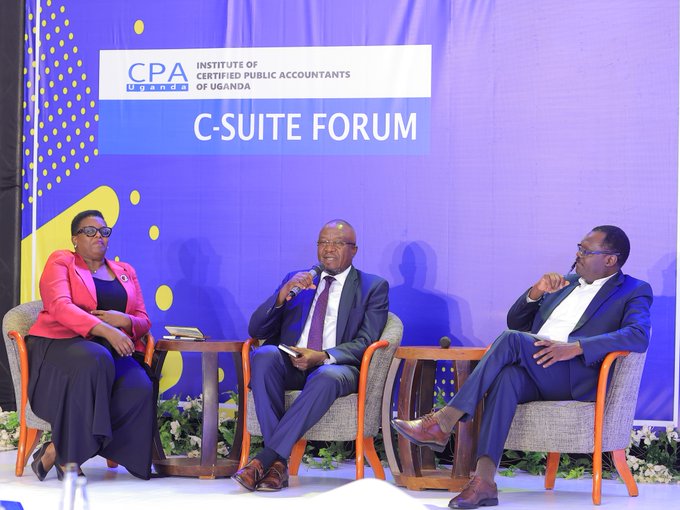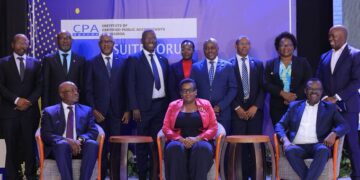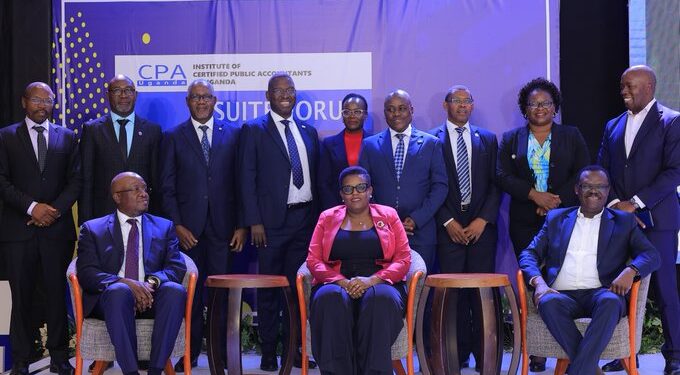CPA Patrick Ayota, Managing Director of the National Social Security Fund (NSSF) Uganda, with passion, data, and deeply grounded optimism, has challenged executives to reimagine leadership in a rapidly shifting world.
He was speaking at the 3rd C-Suite Forum 2025, a defining platform for Uganda’s corporate future, held Sheraton Hotel, Kampala. Ayota took a moment to reflect on something often overlooked: Uganda’s inherent beauty and boundless potential.
“Uganda isn’t just a developing nation—it’s a vibrant, centrally located, resource-rich country full of possibilities,” he declared. “Sometimes, dust means something is being built. When you see dust in Uganda, look deeper—something is happening.”
From Crisis to Confidence: The NSSF Journey
In 2015, NSSF faced a crisis of public trust, slow systems, and leadership doubt. But Ayota and his team didn’t retreat—they rebuilt. Vision 2025 was more than a slogan. It was a commitment to performance, trust, and transformation.
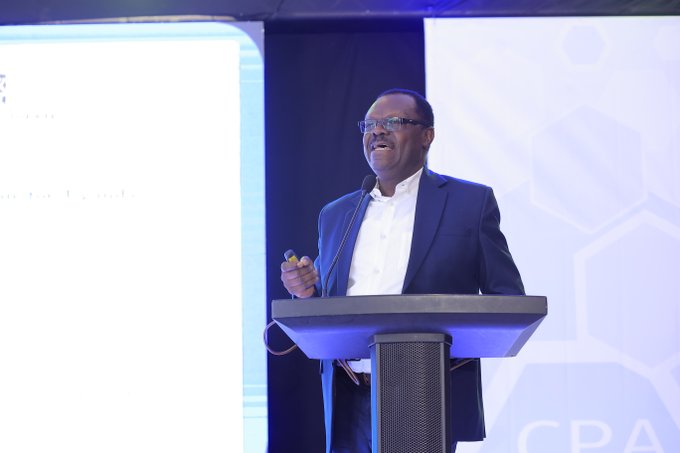
“Performance that is measured and rewarded will be performance that is delivered,” he said, explaining how linking strategy to people’s purpose, improving staff welfare, and measuring impact drove the Fund’s rapid turnaround.
By 2024, NSSF had achieved UGX 20 trillion in assets, 18 months ahead of target. More importantly, they cut benefit processing from 18 days to just one, and improved satisfaction to over 95%. “Transformation isn’t a miracle,” Ayota said. “It’s clarity, consistency, and systems that serve people.”
Vision 2035: Inclusion, Innovation, and Integrity
With Vision 2025 achieved, Ayota laid out the next ambitious chapter: Vision 2035. Its goal? Grow membership from 2.3 million to 15 million, and make social security truly universal, extending to farmers, boda riders, and informal workers.
“Social security isn’t a luxury,” he emphasised. “It’s right. And if we’re serious about national development, we must include everyone.”
To reach this future, NSSF is investing in agility over rigid planning. “Sometimes you have to go through point C to get to point A,” Ayota explained, highlighting how flexibility, not perfectionism, has been key to growth. Digital platforms now allow even informal workers to save as little as $5 multiple times a day. AI tools assist with onboarding and automate service decisions, freeing up staff to deliver better, not just faster.

Culture: The Real Strategy
Ayota returned again and again to a central truth: culture is the core engine of transformation. “It’s not just about hiring smart people,” he said. “It’s about finding those who align with our values of integrity, collaboration, and creativity. If that’s not there, it won’t work—no matter how brilliant someone is.”
During the forum’s Q&A session moderated by Jackie Namara Rukare, Ayota explained that at NSSF, interviews now focus more on mindset and behaviour than just qualifications. “Being an A-player is about impact, not just output,” he said. “It’s about how you show up—consistently.”
He added, “You can have the best tools, but if your culture doesn’t support the vision, your strategy is dead on arrival.”
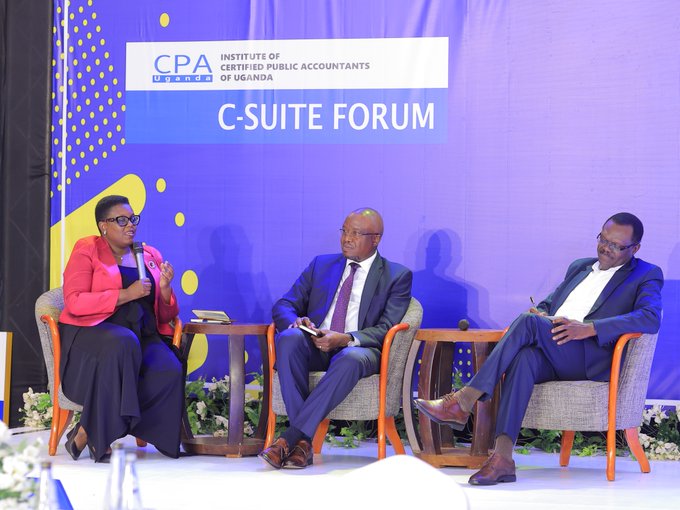
Tech is a Tool, Not a Threat
Ayota also tackled one of the most pressing fears in the modern C-suite: automation and job loss. “The jobs aren’t gone—they’re changing,” he said. “Technology doesn’t replace people; it removes obstacles so they can do more.”
He cited examples where digitisation allowed NSSF to reach new populations, track member behaviour in real-time, and build trust. “When we opened the mid-year withdrawal window, we expected mass exits,” he recalled. “Instead, withdrawals dropped from 51,000 in June to 6,000 by December. That wasn’t a fluke—that was trust.”
Data Protection & Cybersecurity
Ayota didn’t shy away from challenges either. As digital systems expand, so do risks. He emphasised that the biggest cybersecurity threats often come from within. “Regulation alone isn’t enough,” he warned. “We need vigilance. Culture. Awareness.”
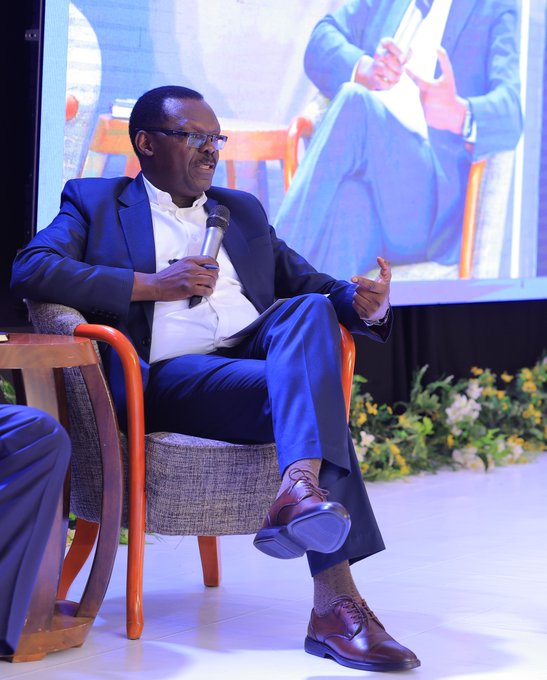
NSSF has since overhauled its data governance systems, complying with the Data Protection Act and adopting secure cloud storage. But beyond tools and firewalls, Ayota argued that the real safeguard is people: “Your culture must protect what your brand has worked so hard to build—trust.”
The Leadership Uganda Needs Now
From performance metrics to policy alignment, from culture to cloud computing, Ayota’s message was clear: Uganda doesn’t need to wait for external validation—it needs confident, ethical leaders who believe in the country, tell its story, and build for all.
“Change isn’t linear. Leadership isn’t a title. Innovation isn’t optional,” Ayota concluded. “Let’s stop fearing the future. Let’s shape it.”
On his part, Prof. CPA Samuel Sejjaaka, Principal and Country Team Leader at MAT ABACUS Business School delivered a thought-provoking and urgent message: “Don’t lead with yesterday’s logic.”
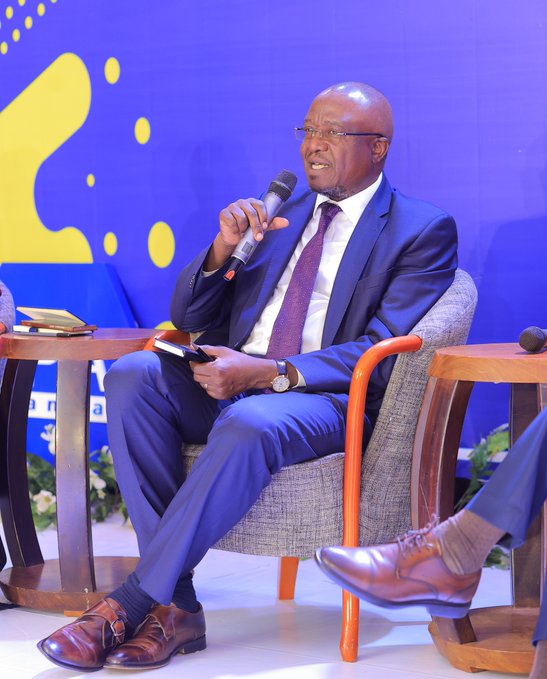
“Leadership today is not about authority. It’s about agility, listening, and enabling others. The best leaders don’t just control—they empower.”
Prof. Sejjaaka challenged the C-Suite to abandon rigid, outdated models and embrace adaptive leadership that thrives in uncertainty. “If your product, service, or strategy is based on assumptions from five years ago, you’re already behind,” he warned.
“True leaders anticipate change, adapt fast, and move with clarity—even when the path isn’t certain,” he noted.
He cited the five pillars of leadership: Agility – Shift gears quickly and respond to disruption without panic; Listening – Pay attention to market signals, customer sentiment, and team morale; Execution – Great ideas mean little without decisive, effective action; Continuous Learning – The best leaders are curious, humble, and always improving and Anticipation – Look beyond the immediate crisis. Scan the horizon for what’s next.
